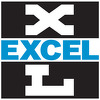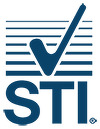
Health, Safety, and Welfare
All courses identified as HSW, cover Health, Safety, and Welfare topics and have been approved by the AIA (American Institute of Architects) as an HSW Learning Unit (LU/HSW).

 Code-mandated requirements for inspections first appeared in the Uniform Building Code in 1927, and their original intent is still recognizable in our current codes: inspections by a building official are required at specific points in the construction process. In this course, we will examine an alternative to the periodic inspection process, the full-time inspector of record (IOR). We’ll review the historical context and qualifications of the IOR, when a project may benefit from an IOR, and the impact of using an IOR on life safety and property damage.
Code-mandated requirements for inspections first appeared in the Uniform Building Code in 1927, and their original intent is still recognizable in our current codes: inspections by a building official are required at specific points in the construction process. In this course, we will examine an alternative to the periodic inspection process, the full-time inspector of record (IOR). We’ll review the historical context and qualifications of the IOR, when a project may benefit from an IOR, and the impact of using an IOR on life safety and property damage.

https://redirect.aecdaily.com/s18122/www.aecdaily.com/course/976063
This course is part of one or more "Course Collections". Click here to view the details.
This course is ONLINE: SELF-PACED. Experience it on your own schedule, at your convenience.

 The magnitude and negative impacts of solid waste have become increasingly apparent, especially in regard to plastics and their presence in the oceans. As a result, there have been many approaches to rethinking what constitutes waste and how it can be avoided or used/managed in a more sustainable manner. This course explores these emerging approaches to waste management planning and illustrates them with current examples of solid waste management plans and initiatives from various countries around the globe. In the first part of this course, we’ll dig into the impact of our growing waste problem and some methods for rethinking this waste. In the second, we’ll provide guidance for the design of a sustainable community waste management plan.
The magnitude and negative impacts of solid waste have become increasingly apparent, especially in regard to plastics and their presence in the oceans. As a result, there have been many approaches to rethinking what constitutes waste and how it can be avoided or used/managed in a more sustainable manner. This course explores these emerging approaches to waste management planning and illustrates them with current examples of solid waste management plans and initiatives from various countries around the globe. In the first part of this course, we’ll dig into the impact of our growing waste problem and some methods for rethinking this waste. In the second, we’ll provide guidance for the design of a sustainable community waste management plan.

https://redirect.aecdaily.com/s18122/www.aecdaily.com/course/877584
This course contains sustainable design information. See the course details page for more information.
This course is ONLINE: SELF-PACED. Experience it on your own schedule, at your convenience.

 Glass block adds light and beauty to exterior and interior projects through a wide array of patterns, sizes, and colors. This course reviews these options as well as the energy efficiency and fire ratings of glass block, installation methods, sustainable benefits, and prefabricated options for projects demanding durability, security, and resistance to extreme weather. The course concludes with case studies that demonstrate the unlimited design possibilities of this versatile product.
Glass block adds light and beauty to exterior and interior projects through a wide array of patterns, sizes, and colors. This course reviews these options as well as the energy efficiency and fire ratings of glass block, installation methods, sustainable benefits, and prefabricated options for projects demanding durability, security, and resistance to extreme weather. The course concludes with case studies that demonstrate the unlimited design possibilities of this versatile product.

https://redirect.aecdaily.com/s958811/www.aecdaily.com/course/964937
This course contains sustainable design information. See the course details page for more information.
This course is part of one or more "Course Collections". Click here to view the details.
This course is ONLINE: SELF-PACED. Experience it on your own schedule, at your convenience.

 Recycled rubber flooring is an environmentally responsible material that outlasts many types of traditional commercial flooring products when exposed to normal foot traffic stress. Interior and exterior recycled rubber surfacing products are explored in terms of their sustainable design benefits and applications. The program includes discussions on rubber manufacturing, postconsumer tires, and green building certification systems.
Recycled rubber flooring is an environmentally responsible material that outlasts many types of traditional commercial flooring products when exposed to normal foot traffic stress. Interior and exterior recycled rubber surfacing products are explored in terms of their sustainable design benefits and applications. The program includes discussions on rubber manufacturing, postconsumer tires, and green building certification systems.

https://redirect.aecdaily.com/s17445/www.aecdaily.com/course/540937
This course contains sustainable design information. See the course details page for more information.
This course is part of one or more "Course Collections". Click here to view the details.
This course is ONLINE: SELF-PACED. Experience it on your own schedule, at your convenience.

 Prefabrication, in whole or in part, is a rapidly growing construction trend that has influenced how buildings and their components are being designed and assembled on- or off-site. This course provides an overview of the various prefabrication approaches, focusing on prefabricated bathrooms. It explores how designers can identify the prefabricated bathroom products and suppliers that best integrate with building prefabrication to optimize product and building benefits, economies, performance, and quality.
Prefabrication, in whole or in part, is a rapidly growing construction trend that has influenced how buildings and their components are being designed and assembled on- or off-site. This course provides an overview of the various prefabrication approaches, focusing on prefabricated bathrooms. It explores how designers can identify the prefabricated bathroom products and suppliers that best integrate with building prefabrication to optimize product and building benefits, economies, performance, and quality.

https://redirect.aecdaily.com/s6403/www.aecdaily.com/course/1045555
This course is part of one or more "Course Collections". Click here to view the details.
This course is ONLINE: SELF-PACED. Experience it on your own schedule, at your convenience.

 Bathing facility code compliance does not have to result in an institutional look. Assisted living and healthcare facilities, hospitality installations, universities, multifamily buildings, and large commercial projects all have unique demands, and most require barrier-free, ADA, UFAS, ANSI, California Title 24, or Massachusetts compliant bathing and showering facilities. This course provides an overview of intelligent design solutions that simultaneously address these code requirements and the aesthetic and functional demands of each situation.
Bathing facility code compliance does not have to result in an institutional look. Assisted living and healthcare facilities, hospitality installations, universities, multifamily buildings, and large commercial projects all have unique demands, and most require barrier-free, ADA, UFAS, ANSI, California Title 24, or Massachusetts compliant bathing and showering facilities. This course provides an overview of intelligent design solutions that simultaneously address these code requirements and the aesthetic and functional demands of each situation.

https://redirect.aecdaily.com/s811813/www.aecdaily.com/course/948090
This course contains accessible design information. See the course details page for more information.
This course is part of one or more "Course Collections". Click here to view the details.
This course is ONLINE: SELF-PACED. Experience it on your own schedule, at your convenience.

 Outdoor living space has become an important residential design consideration in the last several years. Decks create welcoming spaces to relax and entertain with family and friends, and a well-built deck can add more living space and value to a home. This course discusses deck surfaces, maintenance, and costs and explores porcelain tile as an alternative to wood and composite deck surfaces that is well suited to exterior environments. Also discussed is how porcelain tile can be used with a new pultruded fiberglass and composite underlayment, called structural ribbed self-supporting boards, and the sustainable features of this technology.
Outdoor living space has become an important residential design consideration in the last several years. Decks create welcoming spaces to relax and entertain with family and friends, and a well-built deck can add more living space and value to a home. This course discusses deck surfaces, maintenance, and costs and explores porcelain tile as an alternative to wood and composite deck surfaces that is well suited to exterior environments. Also discussed is how porcelain tile can be used with a new pultruded fiberglass and composite underlayment, called structural ribbed self-supporting boards, and the sustainable features of this technology.

https://redirect.aecdaily.com/s13907/www.aecdaily.com/course/975033
This course contains sustainable design information. See the course details page for more information.
This course is part of one or more "Course Collections". Click here to view the details.
This course is ONLINE: SELF-PACED. Experience it on your own schedule, at your convenience.

 As interest in cross-laminated timber (CLT) buildings grows, the market for building enclosure products as a whole has yet to fully provide the water-resistant barriers, vapor retarders, and air barriers to optimally support the unique characteristics of wood. Furthermore, there are few building enclosure design guides specific to detailing wood-framed walls and roofs. This comprehensive course fills the gaps, providing detailed information on mass timber, building enclosure issues, the vapor-permeable technology available to address wood’s unique moisture characteristics, and a how-to guide on detailing the walls and roof of the enclosure.
As interest in cross-laminated timber (CLT) buildings grows, the market for building enclosure products as a whole has yet to fully provide the water-resistant barriers, vapor retarders, and air barriers to optimally support the unique characteristics of wood. Furthermore, there are few building enclosure design guides specific to detailing wood-framed walls and roofs. This comprehensive course fills the gaps, providing detailed information on mass timber, building enclosure issues, the vapor-permeable technology available to address wood’s unique moisture characteristics, and a how-to guide on detailing the walls and roof of the enclosure.

https://redirect.aecdaily.com/s480282/www.aecdaily.com/course/970413
This course contains sustainable design information. See the course details page for more information.
This course is ONLINE: SELF-PACED. Experience it on your own schedule, at your convenience.

 Concrete products such as precast pieces, pavers, and terrazzo have long provided builders with a flexible range of options for their projects. Beyond their versatility, these concrete products are highly sustainable, thanks to their ability to be recycled, low carbon footprint, and long life span.
Concrete products such as precast pieces, pavers, and terrazzo have long provided builders with a flexible range of options for their projects. Beyond their versatility, these concrete products are highly sustainable, thanks to their ability to be recycled, low carbon footprint, and long life span.

https://redirect.aecdaily.com/s987165/www.aecdaily.com/course/1010278
This course contains sustainable design information. See the course details page for more information.
This course is ONLINE: SELF-PACED. Experience it on your own schedule, at your convenience.

 Insights gained during the COVID-19 pandemic have shown how vulnerable we are to contagion through indoor air, but the pandemic also revealed many new solutions to better ensure indoor air quality. In this course, we examine the role of humidity in indoor air quality and its impact on air pollutants. We also discuss how to control humidity in residential and commercial spaces and review several solutions for humidity control.
Insights gained during the COVID-19 pandemic have shown how vulnerable we are to contagion through indoor air, but the pandemic also revealed many new solutions to better ensure indoor air quality. In this course, we examine the role of humidity in indoor air quality and its impact on air pollutants. We also discuss how to control humidity in residential and commercial spaces and review several solutions for humidity control.

https://redirect.aecdaily.com/s579297/www.aecdaily.com/course/1069235
This course is part of one or more "Course Collections". Click here to view the details.
This course is ONLINE: SELF-PACED. Experience it on your own schedule, at your convenience.

 Stormwater management is critical in an era when severe storms and sewer overflows are increasing in many areas. In urban contexts where open space is at a premium, using on-structure bioretention planters can be the ideal approach. This course explores the benefits of bioretention and how bioretention planters reduce peak flows and improve water quality. The course also discusses how bioretention planters should be designed, can perform as amenities, and contribute to meeting the requirements of green building certification programs.
Stormwater management is critical in an era when severe storms and sewer overflows are increasing in many areas. In urban contexts where open space is at a premium, using on-structure bioretention planters can be the ideal approach. This course explores the benefits of bioretention and how bioretention planters reduce peak flows and improve water quality. The course also discusses how bioretention planters should be designed, can perform as amenities, and contribute to meeting the requirements of green building certification programs.

https://redirect.aecdaily.com/s727499/www.aecdaily.com/course/1116218
This course is part of one or more "Course Collections". Click here to view the details.
This course is ONLINE: SELF-PACED. Experience it on your own schedule, at your convenience.

 Fiberglass doors offer design professionals beautiful and durable options for their projects. This course discusses the physical and structural components of fiberglass entry doors and compares their performance to that of wood and steel doors. Described here are the National Fenestration Rating Council rating system, the North American Fenestration Standard, and the use of fiberglass entry doors to fulfill guidelines relating to ENERGY STAR® and LEED®.
Fiberglass doors offer design professionals beautiful and durable options for their projects. This course discusses the physical and structural components of fiberglass entry doors and compares their performance to that of wood and steel doors. Described here are the National Fenestration Rating Council rating system, the North American Fenestration Standard, and the use of fiberglass entry doors to fulfill guidelines relating to ENERGY STAR® and LEED®.

https://redirect.aecdaily.com/s489551/www.aecdaily.com/course/973965
This course contains sustainable design information. See the course details page for more information.
This course is part of one or more "Course Collections". Click here to view the details.
This course is ONLINE: SELF-PACED. Experience it on your own schedule, at your convenience.

 The beaches and proximity to the Atlantic Ocean are some of the advantages of living in Florida. However, the extreme wind forces from hurricanes can easily damage even the strongest buildings and cause billions of dollars in property loss. As a result, certain areas of Florida―Miami-Dade and Broward Counties—have been designated High Velocity Hurricane Zones. The building products used in these zones must be laboratory tested to meet extreme wind and pressure performance standards. This course explains why a metal roof system designed to minimize the damage from hurricanes is important.
The beaches and proximity to the Atlantic Ocean are some of the advantages of living in Florida. However, the extreme wind forces from hurricanes can easily damage even the strongest buildings and cause billions of dollars in property loss. As a result, certain areas of Florida―Miami-Dade and Broward Counties—have been designated High Velocity Hurricane Zones. The building products used in these zones must be laboratory tested to meet extreme wind and pressure performance standards. This course explains why a metal roof system designed to minimize the damage from hurricanes is important.

https://redirect.aecdaily.com/s5533/www.aecdaily.com/course/978835
This course is ONLINE: SELF-PACED. Experience it on your own schedule, at your convenience.

 Gate and fencing systems can be both functional and decorative. This course illustrates how architectural gate and fencing systems can be designed to meet modern security and design requirements while harmonizing with their surrounding environment. Fencing and gate systems are discussed in terms of their composition, materials, coatings, finishes, and performance in interior and exterior applications.
Gate and fencing systems can be both functional and decorative. This course illustrates how architectural gate and fencing systems can be designed to meet modern security and design requirements while harmonizing with their surrounding environment. Fencing and gate systems are discussed in terms of their composition, materials, coatings, finishes, and performance in interior and exterior applications.

https://redirect.aecdaily.com/s1359/www.aecdaily.com/course/881285
This course is part of one or more "Course Collections". Click here to view the details.
This course is ONLINE: SELF-PACED. Experience it on your own schedule, at your convenience.

 Changing climate and land use patterns have necessitated a greater focus on stormwater management. The trench drain industry has developed in a rather fragmented way over the decades, with each manufacturer using their own unique reference points for dimension, load rating, and other criteria. The purpose of this course is to clear up the resulting confusion and provide best practices and a real-world understanding of the multiple variables at play on the project level.
Changing climate and land use patterns have necessitated a greater focus on stormwater management. The trench drain industry has developed in a rather fragmented way over the decades, with each manufacturer using their own unique reference points for dimension, load rating, and other criteria. The purpose of this course is to clear up the resulting confusion and provide best practices and a real-world understanding of the multiple variables at play on the project level.

https://redirect.aecdaily.com/s921773/www.aecdaily.com/course/1009739
This course contains sustainable design information. See the course details page for more information.
This course contains accessible design information. See the course details page for more information.
This course is ONLINE: SELF-PACED. Experience it on your own schedule, at your convenience.

 Electric vehicles (EVs) are rapidly becoming ubiquitous. To serve them sufficiently, there must be a massive expansion of car charging options, and that infers that planners and designers must create those options and opportunities now. This course examines the current trends in, and predictions for, EV chargers, the various types and their attributes, where and how they might be installed for maximum effectiveness, and the programs and incentives that apply to both EVs and their charger requirements.
Electric vehicles (EVs) are rapidly becoming ubiquitous. To serve them sufficiently, there must be a massive expansion of car charging options, and that infers that planners and designers must create those options and opportunities now. This course examines the current trends in, and predictions for, EV chargers, the various types and their attributes, where and how they might be installed for maximum effectiveness, and the programs and incentives that apply to both EVs and their charger requirements.

https://redirect.aecdaily.com/s525798/www.aecdaily.com/course/1067121
This course contains sustainable design information. See the course details page for more information.
This course is ONLINE: SELF-PACED. Experience it on your own schedule, at your convenience.

 Ventilation grilles influence HVAC system performance but can pose aesthetic challenges for designers. Custom grilles made with modern fabrication techniques employ a variety of materials and finishes to create solutions that enhance and fully integrate with architectural interiors. This course discusses the basic mechanics of effective air distribution in buildings, performance characteristics of grilles, grille types, and custom design options.
Ventilation grilles influence HVAC system performance but can pose aesthetic challenges for designers. Custom grilles made with modern fabrication techniques employ a variety of materials and finishes to create solutions that enhance and fully integrate with architectural interiors. This course discusses the basic mechanics of effective air distribution in buildings, performance characteristics of grilles, grille types, and custom design options.

https://redirect.aecdaily.com/s1608/www.aecdaily.com/course/903341
This course contains sustainable design information. See the course details page for more information.
This course is part of one or more "Course Collections". Click here to view the details.
This course is ONLINE: SELF-PACED. Experience it on your own schedule, at your convenience.

 Retaining walls resist the lateral displacement of soil or other materials, and their long-term performance is dependent on proper design and construction. This course focuses on the segmental retaining wall (SRW), a type of mechanically stabilized earth (MSE) wall. Presented here are SRW types and components, advantages over other retaining wall systems, design considerations, and construction tolerances, as well as reasons that SRWs fail.
Retaining walls resist the lateral displacement of soil or other materials, and their long-term performance is dependent on proper design and construction. This course focuses on the segmental retaining wall (SRW), a type of mechanically stabilized earth (MSE) wall. Presented here are SRW types and components, advantages over other retaining wall systems, design considerations, and construction tolerances, as well as reasons that SRWs fail.

https://redirect.aecdaily.com/s149579/www.aecdaily.com/course/982567
This course is ONLINE: SELF-PACED. Experience it on your own schedule, at your convenience.

 Professional sports stadiums form large complexes with enormous impacts on the environment and local communities. Owners, architects, and operations managers can use this influence to generate a net positive effect on people, the natural environment, and the bottom line. In this video, the executives and consultants involved in the design and daily operation of Gillette Stadium and Mercedes-Benz Stadium discuss the challenges and opportunities of sustainable stadium design. Topics discussed include district energy generation, gray water treatment, evaluation and implementation of new technologies, partnering with local utilities, cost recovery, profitability, and community health.
Professional sports stadiums form large complexes with enormous impacts on the environment and local communities. Owners, architects, and operations managers can use this influence to generate a net positive effect on people, the natural environment, and the bottom line. In this video, the executives and consultants involved in the design and daily operation of Gillette Stadium and Mercedes-Benz Stadium discuss the challenges and opportunities of sustainable stadium design. Topics discussed include district energy generation, gray water treatment, evaluation and implementation of new technologies, partnering with local utilities, cost recovery, profitability, and community health.

https://redirect.aecdaily.com/s5712/www.aecdaily.com/course/870239
This course contains sustainable design information. See the course details page for more information.
This course is ONLINE: SELF-PACED. Experience it on your own schedule, at your convenience.

 Water management is a complex and significant process affecting all levels of planning and building design and is tasked with solving a number of new and emerging issues. This course reviews current stormwater and wastewater management issues and current practices and then takes a look at a number of new and emerging issues that water management plans need to address.
Water management is a complex and significant process affecting all levels of planning and building design and is tasked with solving a number of new and emerging issues. This course reviews current stormwater and wastewater management issues and current practices and then takes a look at a number of new and emerging issues that water management plans need to address.

https://redirect.aecdaily.com/s18122/www.aecdaily.com/course/1110658
This course contains sustainable design information. See the course details page for more information.
This course is ONLINE: SELF-PACED. Experience it on your own schedule, at your convenience.

 Commercial rolling service doors offer high performance solutions for demanding areas. Used both internally and externally, these doors provide excellent thermal insulation, strength, and durability in challenging environments. This course examines the characteristics of rolling service doors, fire doors, grilles, and shutters. Door operation, parts, fire code requirements, and wind load information are also discussed.
Commercial rolling service doors offer high performance solutions for demanding areas. Used both internally and externally, these doors provide excellent thermal insulation, strength, and durability in challenging environments. This course examines the characteristics of rolling service doors, fire doors, grilles, and shutters. Door operation, parts, fire code requirements, and wind load information are also discussed.

https://redirect.aecdaily.com/s15358/www.aecdaily.com/course/791360
This course is ONLINE: SELF-PACED. Experience it on your own schedule, at your convenience.

 Rapidly changing trends in our society, such as urbanization and a modern lifestyle, have resulted in the isolation of humans from experiences within nature. Research has shown that the psychological effects of biophilic design on noise perception have a significant influence on the well-being and health of humans. In this course, we review the science of sound, identify the potential problems associated with noise, and introduce the range of acoustic solutions formed from polyethylene terephthalate (PET) felt designed to provide sound-dampening benefits for busy commercial, educational, and healthcare facilities.
Rapidly changing trends in our society, such as urbanization and a modern lifestyle, have resulted in the isolation of humans from experiences within nature. Research has shown that the psychological effects of biophilic design on noise perception have a significant influence on the well-being and health of humans. In this course, we review the science of sound, identify the potential problems associated with noise, and introduce the range of acoustic solutions formed from polyethylene terephthalate (PET) felt designed to provide sound-dampening benefits for busy commercial, educational, and healthcare facilities.

https://redirect.aecdaily.com/s14798/www.aecdaily.com/course/952903
This course contains sustainable design information. See the course details page for more information.
This course is part of one or more "Course Collections". Click here to view the details.
This course is ONLINE: SELF-PACED. Experience it on your own schedule, at your convenience.

 Firestopping is the process of sealing openings around penetrants or in joints or gaps between fire-rated assemblies to restore hourly fire resistance ratings. It is a critical part of fire containment and a balanced fire and life safety plan. This course outlines resources and code requirements that architects and designers should be aware of while preparing specifications for firestop systems in their projects. The course also reviews common mistakes to avoid.
Firestopping is the process of sealing openings around penetrants or in joints or gaps between fire-rated assemblies to restore hourly fire resistance ratings. It is a critical part of fire containment and a balanced fire and life safety plan. This course outlines resources and code requirements that architects and designers should be aware of while preparing specifications for firestop systems in their projects. The course also reviews common mistakes to avoid.

https://redirect.aecdaily.com/s19863/www.aecdaily.com/course/1077571
This course is ONLINE: SELF-PACED. Experience it on your own schedule, at your convenience.

 “Sustainable” design isn’t just “environmental.” It’s design that works for and contributes to the health and welfare of all individuals as well as the planet, now and in the future. This course looks at hand dryers as part of sustainably designed restrooms and discusses how air knife hand dryers benefit the environment through energy efficiency, resource conservation, and waste reduction, and benefit all members of society by meeting ADA requirements and Universal Design principles.
“Sustainable” design isn’t just “environmental.” It’s design that works for and contributes to the health and welfare of all individuals as well as the planet, now and in the future. This course looks at hand dryers as part of sustainably designed restrooms and discusses how air knife hand dryers benefit the environment through energy efficiency, resource conservation, and waste reduction, and benefit all members of society by meeting ADA requirements and Universal Design principles.

https://redirect.aecdaily.com/s485236/www.aecdaily.com/course/656814
This course contains sustainable design information. See the course details page for more information.
This course contains accessible design information. See the course details page for more information.
This course is part of one or more "Course Collections". Click here to view the details.
This course is ONLINE: SELF-PACED. Experience it on your own schedule, at your convenience.

 Les panneaux décoratifs en bois composite (TFL), que l’on appelle aussi panneaux en mélamine, sont devenus le choix no 1 pour ce qui est du réalisme durable dans les cuisines, les garde-robes, les bureaux à domicile et le mobilier de rangement, en raison de leur excellent rapport qualité-prix, et de leur qualité, tout cela sans avoir à faire de sacrifice esthétique. Nous voulons vous parler de l’histoire et de la fabrication des panneaux de TFL, de leurs propriétés et caractéristiques techniques, du lien entre la texture et les perceptions et du rôle que joue la texture dans l’effet visuel d’un panneau de TFL. Enfin, nous allons parler des tendances dans le domaine résidentiel qui forcent les designers et les fabricants à innover.
Les panneaux décoratifs en bois composite (TFL), que l’on appelle aussi panneaux en mélamine, sont devenus le choix no 1 pour ce qui est du réalisme durable dans les cuisines, les garde-robes, les bureaux à domicile et le mobilier de rangement, en raison de leur excellent rapport qualité-prix, et de leur qualité, tout cela sans avoir à faire de sacrifice esthétique. Nous voulons vous parler de l’histoire et de la fabrication des panneaux de TFL, de leurs propriétés et caractéristiques techniques, du lien entre la texture et les perceptions et du rôle que joue la texture dans l’effet visuel d’un panneau de TFL. Enfin, nous allons parler des tendances dans le domaine résidentiel qui forcent les designers et les fabricants à innover.

https://redirect.aecdaily.com/s16445/www.aecdaily.com/course/965868
This course contains sustainable design information. See the course details page for more information.
This course is ONLINE: SELF-PACED. Experience it on your own schedule, at your convenience.